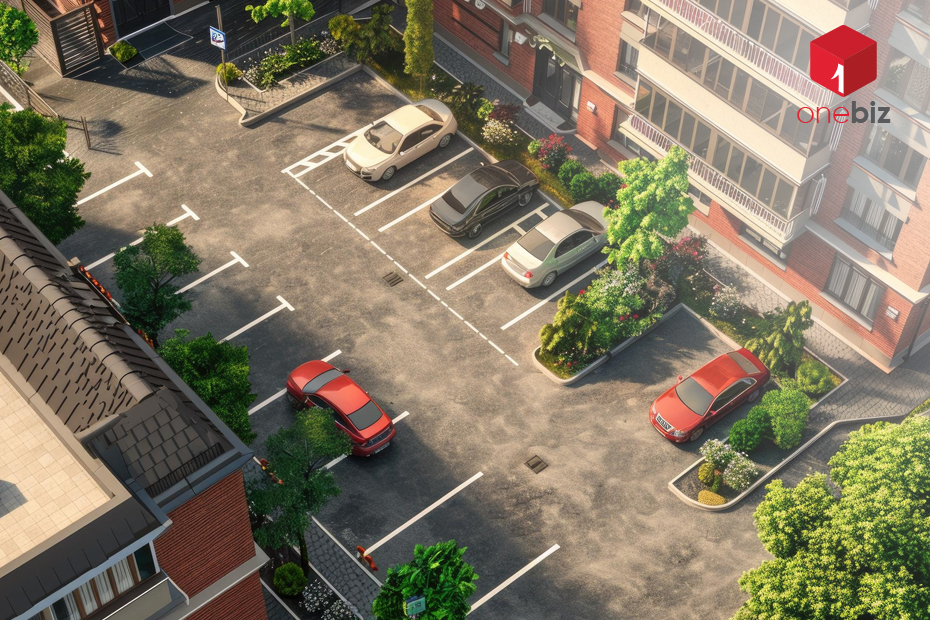Parking has become a significant issue in urban residential complexes, especially in cooperative housing societies, where space is limited, and demand for parking slots continues to grow. Effective co-operative housing society management plays a crucial role in resolving parking issues while ensuring fairness in allocating parking spaces. In this blog, we’ll discuss common parking problems faced by residents, how parking management in housing society works, and the various charges associated with parking facilities.
COMMON PARKING PROBLEMS IN COOPERATIVE HOUSING SOCIETIES
1. Limited Parking Space
One of the most common issues is the shortage of parking space. With more households owning multiple vehicles, the demand for parking spots exceeds the available capacity, leading to conflicts among residents. Proper planning by co-operative housing society management can help alleviate some of these concerns by ensuring an equitable distribution of parking slots.
2. Unauthorized Parking
Unauthorized parking is another major challenge in housing societies. Residents or visitors often park in spots that don’t belong to them, causing inconvenience to others. This situation leads to disputes, which can escalate if parking management in housing society is not well-regulated.
3. Confusion over Allotted Parking
In many cases, confusion arises regarding the allocation of parking spaces, especially when new members move in or when parking spots are reassigned. Clear communication by the co-operative housing society management is essential to avoid misunderstandings and ensure that everyone is aware of their designated parking area.
4. Charges for Parking
Parking charges vary across cooperative housing societies, and they can sometimes be a point of contention. Some societies charge a flat fee, while others may implement tiered pricing based on the size or number of vehicles. Without transparency, these charges may appear unfair to residents.
PARKING MANAGEMENT IN HOUSING SOCIETIES
Effective parking management in housing society is essential to address these issues. It involves clear guidelines regarding the allocation of parking spaces, handling disputes, and implementing fair charges for parking. A well-organized system can help ensure that all residents are treated equally and that the available space is utilized efficiently.
Some societies have adopted smart parking systems to enhance parking management in housing societies. These systems allow for real-time monitoring of parking spaces, preventing unauthorized parking and ensuring that residents can find available spots easily.
PARKING CHARGES IN COOPERATIVE HOUSING SOCIETIES
Parking charges are often determined based on various factors, including the type of vehicle, availability of space, and the rules set by the co-operative housing society management. Here are some common types of parking charges:
- Flat Parking Fee: A fixed charge applicable to all residents.
- Vehicle-Type Based Fee: Differentiated charges for two-wheelers and four-wheelers.
- Additional Parking Charges: Extra charges for households owning more than one vehicle.
These charges help the society maintain and manage the parking facilities, but it is crucial that they are set transparently to avoid disputes.
Parking problems are a common issue in cooperative housing societies, but with efficient co-operative housing society management and clear guidelines for parking management in housing society, these challenges can be minimized. Proper planning, transparent communication, and fair pricing are essential to ensure that all residents have access to parking and that conflicts are resolved smoothly. As urban spaces continue to shrink, societies must adopt innovative parking solutions to accommodate growing vehicle ownership.
